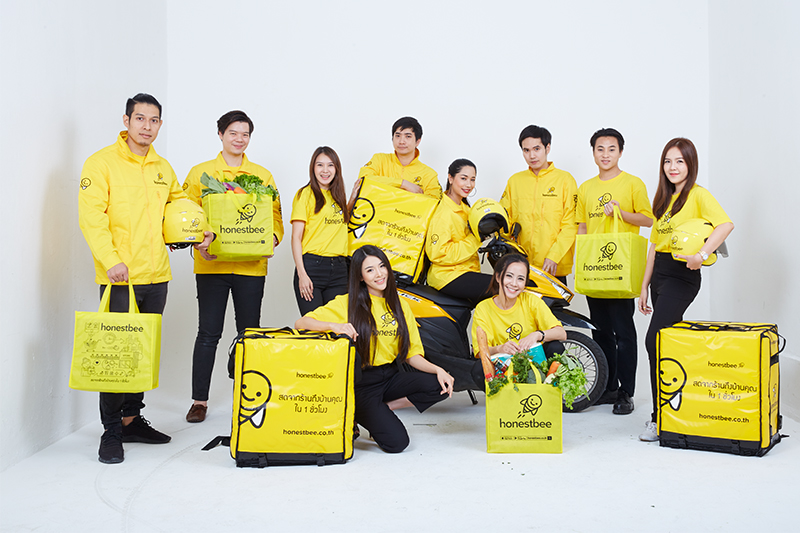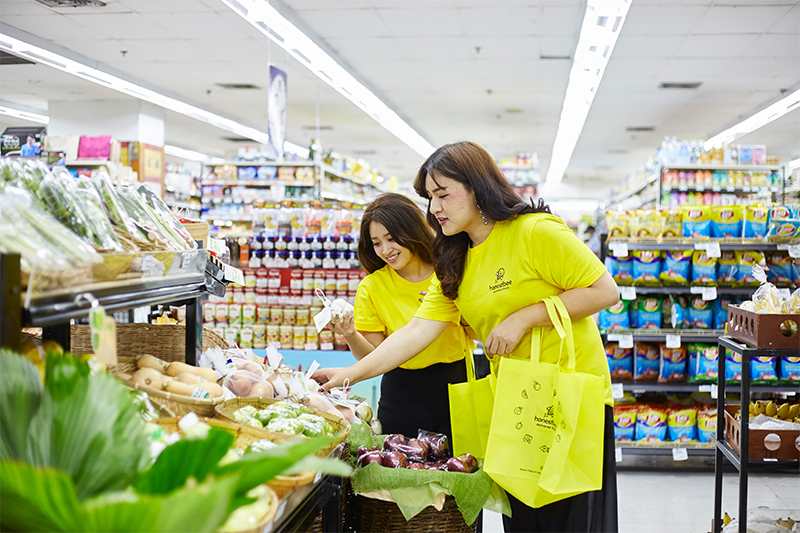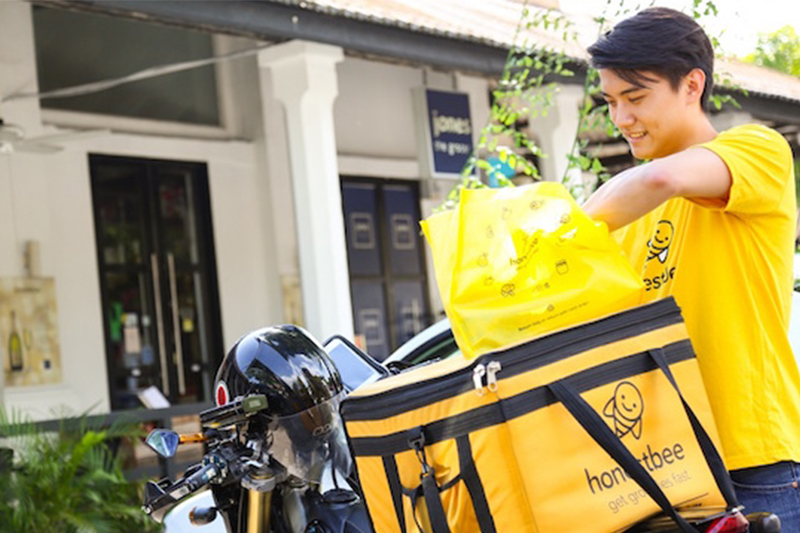Singapore-based shopping and delivery app Honestbee is quickly gaining devotees in Bangkok who love its game changing shopping experience. Read on to discover more about Asia’s leading delivery service.
Joining the fierce game with players such as Foodpanda and UberEats, Asia delivery and shopping app Honestbee aims to offer an alternative lifestyle for both its workers and its users. Operating a self-styled system of busy bees who gather and deliver goods to customers around Asia in a series of local operations, the Singapore-based business is striving to put itself at the heart of retail’s future. As Varongnard Trongkongsin, Deputy Managing Director of Honestbee Thailand, puts it, “The world has changed, people are selling on Facebook and Instagram but this is not a really secure place for users.” Step forward Honestbee…

When it comes to balancing a busy lifestyle, online merchant Honestbee knows that simple and convenient technology can go a long way. Launched in Singapore by CEO and Founder Joel Sng in 2015, the newest member of Asia’s hugely expanding, gig-economy backed delivery giants, now has a presence in eight countries from Taiwan and Hong Kong to Malaysia and Japan. At its outset, the goal was simple – to create an online platform that would provide on demand, flexible job opportunities for workers and a convenient delivery network for shoppers. Through Honestbee, customers can order food delivery from partner restaurants as well as buy groceries, which are then hand picked from supermarket and deli shelves by ‘bees’ before being delivered within a one hour window. It’s this latest part that differs Honestbee from their stiff competition – their personal shoppers are trained to know exactly where products are placed in different supermarkets and are familiar with the closest substitutions in case a product runs out.

In Thailand, the proposition is the same. “Now that everything happens on the phone, Honestbee is standing out from the crowd with its promise to deliver to your doorstep within one hour, catering to the busy lifestyle of Bangkokians,” says Varongnard. One and a half years into business, they’re well on their way – though not without fierce competition. “Thailand has a big potential for this type of business and this will attract more competitors,” she states.
With an Asia-wide presence, Honestbee is required to pivot for certain markets. Varongnard clarifies, “The starting point for all the countries is the same. But to run a business we need to know the differences in each country and be able to adapt to fit with the local market. For example, there is no traffic in Singapore, you can still use vans and cars to deliver, but in Bangkok we can only use motorcycles.” What remains the same is the fuel in their engine – the endeavours of their ‘bees,’ people looking for flexible and workable job opportunities for a variety of reasons. “Our mission is to provide a positive and financial impact to all the lives that we touch whether it’s the staff, bees or partners” says Varongnard. “Our shoppers and riders don’t have to be full-time – we have mothers who come in the morning after sending their kids to school. Our bees have the flexibility to choose shifts that work best for them.”

From a consumer perspective, Honestbee’s offering is all about convenience. Much like in other cities, in Bangkok, the company has found that their primary customers are those who value time but don’t have much of it – typically millennials, working professionals, mums and expats. Still, there is work to do in creating brand awareness and converting people to the cause. “It is still a continuing progress in Thailand,” stresses Varongnard. “There are people who don’t know about us or what we offer. We are currently focusing on marketing both online and offline at events. And, initially, a lot of business owners and stores were afraid of cannibalisation as they thought that using us may mean not a lot of people will come to the physical supermarket anymore.” Though, she is at pains to point out this is not true. “E-commerce and online delivery applications create bigger markets. Customers usually go to physical stores that are around 500m to 1km from where they are, but with online delivery, we can expand the area that one store can cover.”
For Honestbee, the way forward in Thailand and other territories is to help both their retail partners and their customers concurrently. In Bangkok, the company recently launched a membership program called Beethrive. “Customers will get ‘Buy 1 get get 1 free’ items, from over 100 restaurants,” explains Varongnarn. “Going forward, Honestbee hopes to not only drive customers to use the online application, but also drive them to physical stores by giving special benefits from over 200 partners.” It could well be that outsourcing shopping to online third parties is one of the saving graces of bricks and mortar. And, if so, Honestbee could well be placed to maximise on that.
Related Articles
E-Commerce: How Consumers Expectations Have Driven Faster Delivery Times
How E-Commerce Will Help Asia’s Post-COVID Recovery, According to Industry Experts




